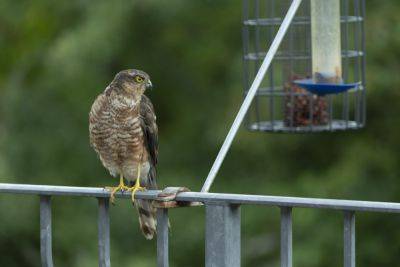Sparrowhawks are one of the most agile birds of prey in the UK. They evolved to nip, dive and swerve around trees to hunt in forests, and this means they’re also well-adapted to hunt amongst the buildings in our urban centres. I’ve seen them several times in my garden in urban Cambridge. Either perched on my fence, streaking across in a blur, or, on one memorable occasion, swiping a Starling from the bird feeder and plucking it on the ground.
Results of the IGPOTY Macro Art 17 revealed
23.08.2023 - 12:05 / theenglishgarden.co.uk / Niamh Collins
International Garden Photographer of the Year (IGPOTY) is now in its 17th competition year and continues to be one of the world’s most respected photography competitions and touring exhibition; especially in the garden and plant photography genres.
The ‘Macro Art’ results were announced this August and The English Garden are delighted to publish the winners and finalists photographs.
The ubiquitous dandelion seed is nature’s gift to macro photographers; the addition of water droplets enables image refraction and provides endless possibilities. This image was taken under controlled conditions in the studio using focus stacking to achieve the desired depth of field. The refracted subject is a pink Osteospermum flower.
In a small garden on Hong Kong Island, these two individual ants seemed happy meeting up, despite the rainy environment.
I captured this abundant scene of numerous Polyommatus icarus (common blue) butterflies, in my local park. I had never seen so many of them there before. A combination of hot weather, a great amount of Lotus corniculatus (caterpillar’s foodplant) plus lots of other nectar sources, had made a real difference this year (2022). To create more interest in the background – I included hints of wild scabious with the dried, golden grasses.
I photographed this Colias croceus (clouded yellow) butterfly at dawn, which provided an opportunity for excellent background bokeh to be captured using my macro lens.
Last year, one of my goals was to photograph an Anthocharis cardamines (orange-tip) butterfly – in front of the rising sun. In German this butterfly is called Aurora – alike the goddess of dawn, and on this day the conditions were perfect. I found an orange-tip before sunrise, it was windy but
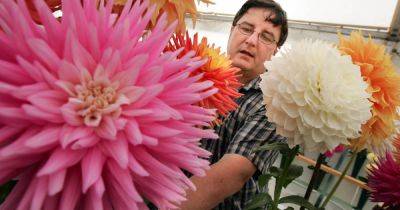
Best in show: Irish dahlia growers compete in the UK
When not in flower, it’s fair to say dahlia plants rarely command a second glance. In fact, to the uninitiated, they could be easily mistaken for potatoes, not that surprising when you consider that these two fast-growing, frost-tender tuberous species share a surprising amount of common ground regarding their geographical range in the wild and their fondness for a certain set of growing conditions that includes a rich, moist but free-draining soil in full sun or light shade. But the comparison ends there. Unlike potatoes, which are valued solely as a tasty food crop, dahlias are generally prized for the otherworldly beauty of their often large and vividly colourful flowers.
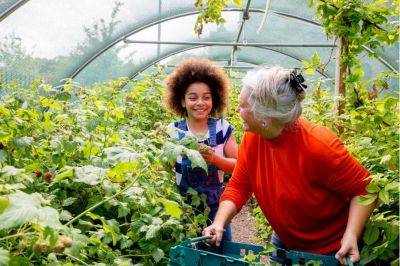
The Ins and Outs of a Sustainable Greenhouse
Traditionally, greenhouses can be quite energy and water intensive, running on fossil fuels which are detrimental to the environment. This is why more and more UK homeowners and gardening enthusiasts are designing their greenhouses with sustainability in mind. In this article, we’ll talk you through the different areas where you can consider improving the sustainability of your greenhouse and how these could benefit you – so that you can garden with a green conscience as well as a green thumb.
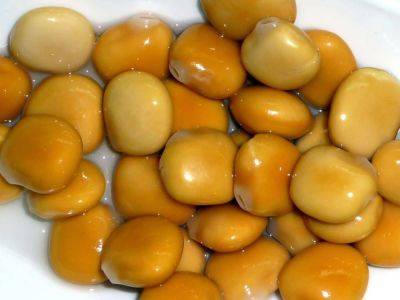
Is this the protein plant of the future? New study finds ‘sweetness gene’ that makes lupins tastier
Header image: Lupinus albus (altramuces o chochitos), by Calapito via Wikimedia Commons.
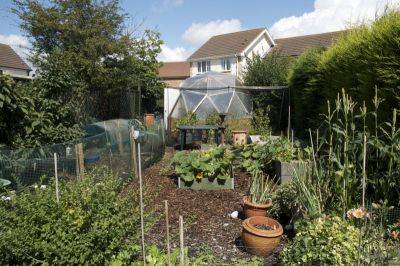
The Alternative Kitchen Garden: an A to Z
Buy Alternative Kitchen Garden from Amazon.co.uk Buy Alternative Kitchen Garden from Amazon.com Buy Alternative Kitchen Garden from the Book Depository
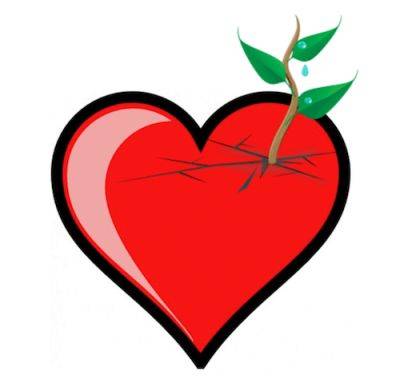
The garden in September
The garden and I have not spent much time together this summer. I’ve been busy… there was weather… there have been too many days when I didn’t feel like going outside. Since the courgette and summer squash started fruiting, I’ve been a bit afraid to go outside in case there’s a mountain of fruit to pick. But the light was nice this morning, so I ventured outside to take a few photos (and the squashes seem to be slowing down, so it’s safe).
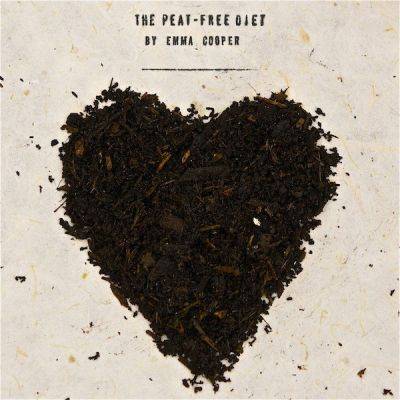
The Peat-Free Diet: Peat-free seed composts
An ideal seed compost is able to retain water, whilst at the same time letting excess water drain away to provide an environment that is damp but not waterlogged. It allows penetration of plant roots and is able to anchor plants, but has space for air. Its texture is consistent, and it is free from pests, diseases and weeds that would compete with the seedlings. As we have seen, it doesn’t need to contain many nutrients if seedlings are going to be pricked out; seedlings growing in modules will either need enough nutrients in the compost to support them through their first weeks of life, or suitable supplementary feeding.

On the Shelf: Nature’s Wild Harvest
Every month this year I’ve been trying to read one of the unread books on my shelf, and to then decide whether it gets to keep its spot or needs to be set free to find a new home. For June I chose Nature’s Wild Harvest by Eric Soothill and Michael J. Thomas. It was published in 1983, and has been sitting on my bookshelf for three years, since I bought it in our local secondhand bookshop (which only opens on Wednesdays).

The Lady Garden
The Body Shop has announced that it is creating its first show garden at RHS Chelsea this year. It’s called The Lady Garden, designed to pay homage to its “founding feminist principles and activist roots”.

Book Review: The Community Gardening Handbook
A lot of new gardening and plant books have landed on my mat this spring, and I need to up my book reviewing game! I like to do them justice, and spend some time reading them before I write a review, so that does create a bit of a backlog. Right at the time when the garden is demanding my attention. Anyway, the book that has found itself at the top of the list is one that really encompasses the gardening zeitgeist – The Community Gardening Handbook, by Ben Raskin. I looked him up, and he has impeccable credentials. He’s currently Head of Horticulture for the Soil Association; prior experiences include working for Garden Organic, running a walled garden and being a Horticultural Advisor for the Community Farm near Bristol.

The grass beneath our feet
The English obsession with grass came into being in the 17th century, when the close cut lawn was a status symbol of the rich. Only they could afford to take land out of production for purely aesthetic purposes, and maintaining a lawn before the invention of the mower was a highly skilled and labour-intensive process. The middle classes started growing lawns from the 1860s onwards, and the Victorian popularity for outdoor sports led to their proliferation. Grass species from the Old World were taken to America during this period, and the lawn took there over in the early 20th century. In 2005, NASA published research suggesting that lawns (including residential and commercial lawns and golf courses) were the single largest irrigated ‘crop’ in America, covering about 128,000 square kilometres. In 2013 there were upwards of 15 millions lawns in Britain, costing us £54 million in fertilisers and £127 million on lawn mowers.

Hands-on gardening on the ISS
If you’re currently tending lettuce plants, then you have something in common with the crew on board the International Space Station (ISS). They’re testing NASA’s new Vegetable Production System – affectionately known as ‘Veggie’. At 11.5 inches by 14.5 inches, Veggie is the largest plant growth chamber to have been blasted into space, and was developed by Orbital Technologies Corp.
